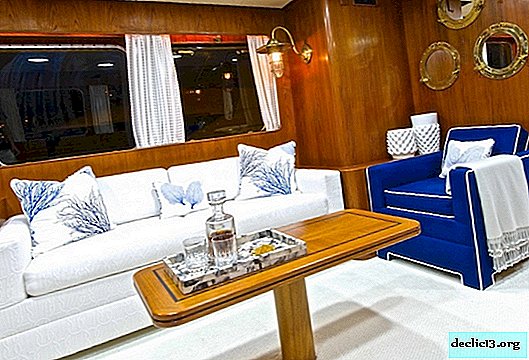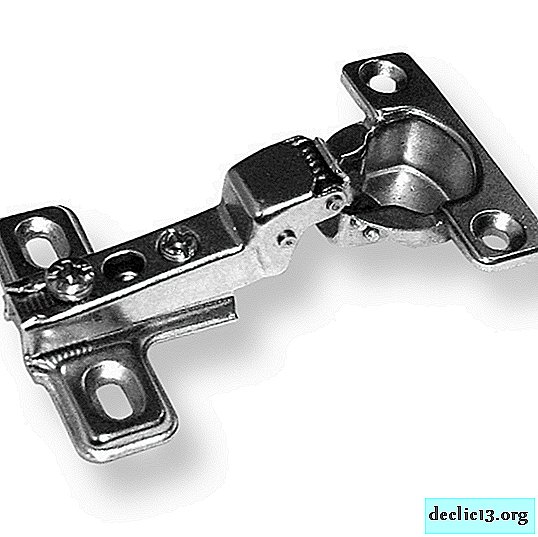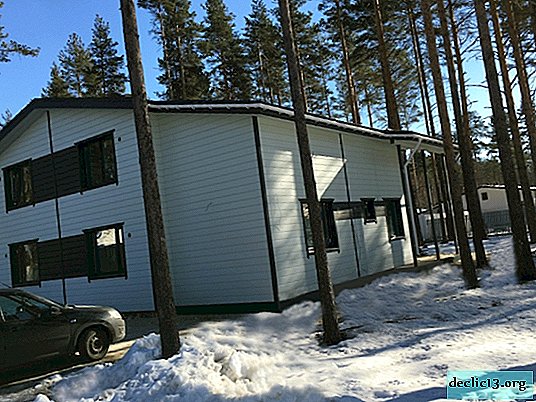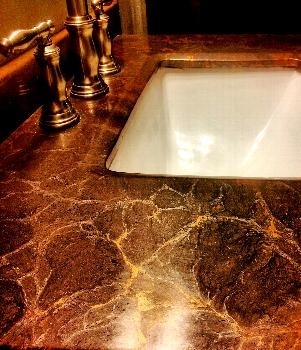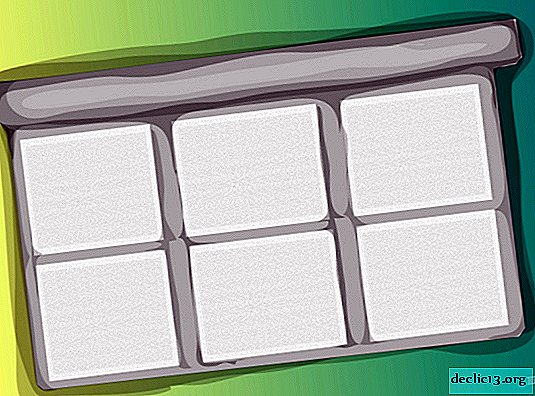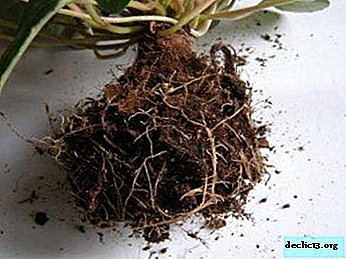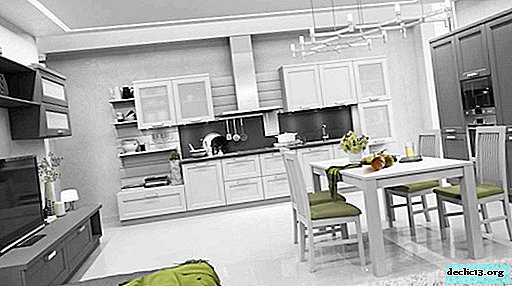Novelty bedspreads, important selection criteria
A beautifully made bed creates a cozy atmosphere in the room, so you can’t do without a bedspread, which not only protects the bedding, but also becomes an important touch in the interior design. When choosing a bedspread for a crib, parents need to consider its appearance and functional features. It should fit into the interior, while meeting the safety requirements, the age of the child.
Basic requirements for children's textiles
The choice of products for children, whether it be toys, clothes or bedding, has its own nuances. At the forefront are such characteristics as quality, convenience, safety. Even the most expensive and beautiful product that does not meet these requirements should not be purchased.
Often the role of bedspreads in a nursery is not limited to the decorative function and the protection of bedding from pollution. Children play on the bed, sit on it or lie down, read books, have a bite. In the kid’s room, the bedspread can move to the floor, turning into a play mat, older children begin to use it for the construction of houses and shelters. You can use it as a blanket during a short day's rest or wrap it in the cold season while watching TV.
The multifunctionality of the bedspreads and its use by children impose the following requirements on the material:
- non-toxicity;
- breathability;
- hygroscopicity;
- simplicity in leaving;
- hypoallergenicity;
- should not be electrified;
- strength;
- pleasant tactile sensations.
Bedspreads come from materials of the same type or include a filler, most often synthetic winterizer. Quilted bedspreads with filler are often stronger, have a more attractive appearance, but more voluminous and expensive in price.





Color and texture of fabric
In most rooms, the bed occupies a significant part of the space, which means that the bedspread will become an essential part of the overall interior. But if adults select bedspreads for the decor, children often focus only on their own taste. Sometimes, especially if they don’t have their own room and the bed is in the parents’ bedroom, the chosen bedspread can get out of the general design, causing protests from the parents. Conflicts can be avoided in two ways:
- Use a double-sided blanket. In this case, you can always turn the product over to soften the flashy contrast;
- make in the area where the bed is, a color accent combined with a bedspread: a small rug, a picture on the wall.
The texture of the fabric for the bedspread can be smooth or printed. However, it is worth remembering: satin bedspreads, popular in the design of adult bedrooms, are not suitable for a nursery. It is better to choose products made from natural fabrics with a low content of synthetic fibers. Thanks to this, the product will wrinkle less and last longer. What is important for mothers, a small addition of artificial fibers will also facilitate the care of the bedspread, it is easier to wash, it dries faster.
In the production of bedspreads are used:
- fleece - this inexpensive material is deservedly popular. It comes in different colors, soft and pleasant to the touch. It absorbs moisture well, warms. But the material is not the most natural and accumulates static electricity;
- Cotton is a natural eco-friendly material. It is inexpensive, it passes air well, has a large selection of colors. However, it wrinkles strongly, quickly gets dirty, and is not very durable. Most often, cotton bedspreads are used for newborn cots, because for this age durability is not required due to the short period of use of things, but safety comes first;
- wool - such bedspreads look expensive and noble. They are natural, which means they absorb moisture and allow air to pass through. At the same time, wool can prick delicate baby skin, it is difficult to wash. Small particles can enter the respiratory tract and cause allergies over time;
- Satin is a dense natural fabric. Satin bedspreads keep their shape well and retain an attractive appearance for a long time. But this fabric is slippery enough that the child may not like;
- tapestry - a beautiful expensive option, however, little suitable for a nursery, since it mainly performs a decorative function;
- microfiber - although this fabric allows air to pass through and absorbs moisture, it is not recommended to use bedspreads from it in a room of small children. It is highly electrified and accumulates dust, which can cause allergies. However, in the room of older children, blankets made of such fabric are acceptable. They do not wrinkle and do not roll, so the bedspreads retain their appearance for a long time.
When choosing the material of a bedspread for a child, one must proceed from the age of the child and from the method of using the bedspread. The younger the age, the more natural the composition should be. If the bedspread is used only for its intended purpose, that is, it closes the bed in the daytime and protects the bedding from pollution, the materials can be any. However, experience shows that the scope of the child’s bedspreads is much wider. Even if it is not used for games, children often sit or lie on the bedspread during the day, take cover when they decide to take a nap or when they are cold. Therefore, it makes no sense to buy bedspreads from expensive fabrics - they will not last long, and the reluctance of the child to handle the product carefully can cause conflicts with parents. Strongly electrifying material will be uncomfortable for the child.
A baby bedspread is unlikely to be used for its intended purpose for a long time: children grow up, they require new, more spacious beds, for which the old bedspread will be small. At the same time, due to its active use, it will probably require frequent washing. Therefore, when choosing a material, it is worth considering the ease of care and safety.
 Tapestry
Tapestry Microfiber
Microfiber Satin
Satin Fleece
Fleece Cotton
Cotton Wool
WoolSize chart
The size of the bedspreads depends on the size of the bed in which the baby sleeps. As a rule, babies sleep in special cribs that have sides, so it makes no sense to choose a bedspread with a large margin at the edges. For this age, it will be enough to buy or sew a product measuring 70-80 cm in width and 110-120 cm in length.
For a preschooler’s bed, a coverlet with a size of 110x140 cm is suitable. For a teenager, the size of the plaid is already at least 140x220 cm and depends on the size of the bed.
Typically, the sizes of the bedspreads are selected so as to cover the mattress, hanging over the edges. How long the free edge will be depends on the preferences of the person, but for a bedroom of a small child, you should not choose a coverlet hanging to the floor. Firstly, it collects dust more strongly, and secondly, the baby will stumble about it. For older children, there are no such restrictions, it all depends on the tastes of the parents and the child himself.
Also, the length of the allowances is affected by the presence of a back and sides at the bed. It is clear that on their part it makes no sense to make large allowances; a few centimeters are enough for the cover to be tucked over the edges. Those who don’t like the look of fabric hanging on the sides of the bed can choose elastic bedspreads. In this case, the dimensions of the bedspread will coincide with the dimensions of the bed, and the product itself will be securely fixed, will not crumple and will not fall.
Today on the market are products of both domestic and foreign production. The Russian dimensional grid is different from the European. But when choosing a bedspread, these differences are less significant than when buying bed linen, since there is no need for greater accuracy in matching sizes. Therefore, you should focus primarily on the parameters of the child's bed.





Design topics taking into account the age and gender of the child
Today, the choice of colors offered by manufacturers is able to satisfy people with a variety of tastes. When choosing a color and pattern, bedspreads for children are guided by the age and gender of the child. The older the child becomes, the more it is necessary to reckon with his tastes and preferences.
At the same time, one should not forget about the interior - it is good if the coverlet fits into it.
Psychologists recommend choosing soft pastel shades for babies' cribs, because bright colors will have an exciting effect on the child. When choosing shades for children's bedspreads for girls, pink, peach, and milky tones are traditionally preferred; for boys, they choose blue, blue, and coffee colors. Delicate beige, green, yellow shades are universal.
With age, the child begins to like bright colors. Preschoolers and primary schoolchildren are happy to surround themselves with the characters of their favorite cartoons and fairy tales. Girls want their bedroom to resemble a princess's room, so they will be delighted with a bedspread with ruffles, ruffles, lace. The image of Disney beauties, flowers, butterflies, animals will delight them. Girls love and patchwork style bedspreads.
When choosing a children's bedspread for a bed for boys, we must remember that they prefer clear geometric shapes and brutal themes: cars, robots, space, sports. Young gentlemen also respect abstraction. But we must remember that the tastes of each child are individual. There are universal themes: the sea and its inhabitants, nature, urban landscapes, neutral characters like Mickey Mouse or Nemo fish.
Teenagers gravitate towards adult topics. It is unlikely that they would like to leave a blanket with obviously childish themes in their room. At the same time, transformers are likely to safely move into the life of a teenager, just like a teenager girl will continue to use a plaid with the image of kittens or flowers with pleasure.
Video
Photo



































